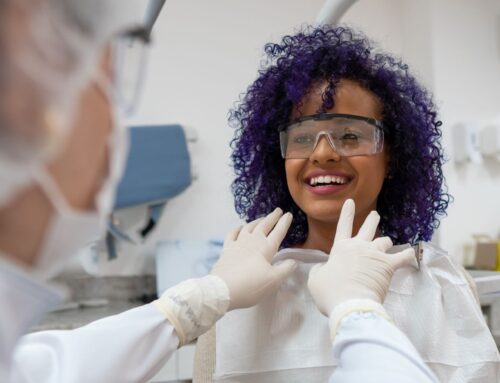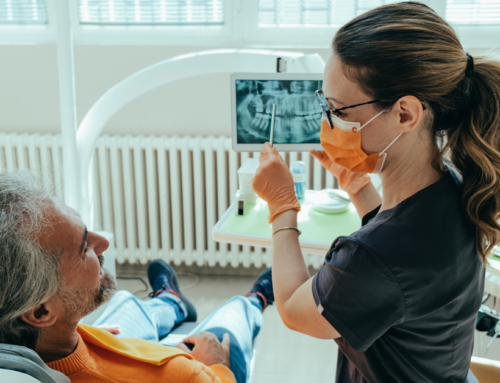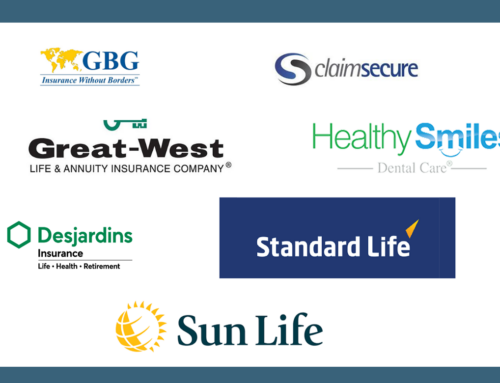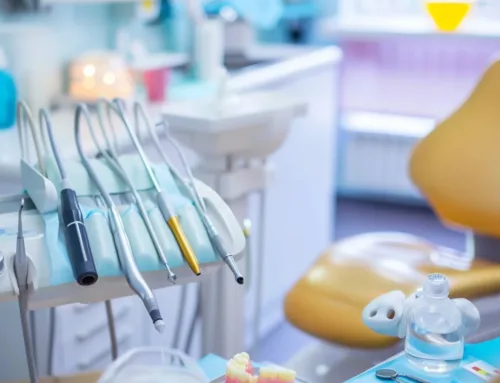Getting Serious About Dental Disorders
We all know that dental maintenance is important, but some issues are more serious than others. Unfortunately, when we postpone a trip to the dentist, what might have been easy to deal with can become a much more complicated problem.
Some of the conditions that are the most difficult to treat are also those which are often found in people who have avoided visits with a dentist for years, if not decades. In those cases, dental surgery is often required.
Oral Cancer
You might not realize how important each dental exam is, but every time a dentist or dental hygienist looks at your mouth, they screen for signs of oral cancer, which is included under the category of “head and neck cancer.” The Canadian Cancer Society estimates these forms of cancer will cause approximately 2,100 Canadian mortalities in 2022, with an estimated 7,500 cases diagnosed in the same year. The McGill University Health Centre reports that head and neck cancer is the sixth most common form of cancer in Canada. According to Cancer.net, more than 475,000 people worldwide were diagnosed with oral and oropharyngeal (throat) cancer in 2020.
Oral cancer can spread quickly throughout the body, often starting with the neck’s lymph nodes. A dental exam includes palpation of the neck and lymph nodes for this reason. Visual examination is also a fairly reliable way to notice many types of irregular cells or growths in the mouth, and further testing can indicate whether cancerous cells are involved. This can require skin samples (biopsies) and X-rays.
According to the Canadian Cancer Society, the most common type of oral cancer is squamous cell carcinoma, which forms in the mouth’s mucous membrane (consisting of squamous cells). Other forms of oral cancer can affect the salivary glands or any part of the mouth surface, including the back of the throat, soft palate and tonsils. Bone cancer also can affect the jaw, and dental symptoms often can lead to a diagnosis.
Oral cancer typically shows up as a non-healing ulcer in the mouth, lumps or lesions, difficulty swallowing and/or pain, sometimes in the ear. Risk factors include tobacco smoking/chewing, and alcohol consumption. HPV infection is also connected with an increased risk of oral cancer. Poor dental hygiene might accelerate the development of cancer, but regardless, it certainly can lead to many other issues.
Let your dentist know as soon as you have any sores or discomfort in your mouth or throat, and they might be able to detect a serious problem, such as cancer. Other times, the issue is benign; it’s common for tissues in the mouth to show redness or become inflamed for many reasons other than cancer. Any bleeding of the gums, swelling or sensitivity can indicate a need for assessment and treatment.
Gum Disease
Among the most serious dental conditions, gum (or periodontal) disease – also called gingivitis, in its mildest form – is a common condition that will affect seven in 10 Canadians, according to the Canadian Dental Association. Your dentist may refer you to a periodontist if the gum disease is severe; they specialize in restoring or regenerating bone and gum tissue that may have been lost or is at risk of deteriorating. The early stages of gum disease are not always obvious to the untrained eye, which is why regular visits to the dentist are so important. Vitamin C deficiency and some diseases, such as diabetes, can increase a person’s susceptibility to gum disease.
Receding gums and, eventually, loosened teeth can appear when periodontal disease has become more advanced. The Canadian Dental Association warns that evidence is growing to show gum disease is linked to “a myriad of health problems such as pneumonia and chronic respiratory disease, heart disease, stroke, and pre-term and low birth weight babies.” It cites a study that found among Canadians aged 36 to 69, those with “severe gum disease” had a three to seven times increased risk of fatal heart disease.
Some of the symptoms you should watch for, that may indicate serious dental issues, are: bleeding or swollen gums, jaw and mouth pain, loose teeth, persistent bad breath and any irregularities (such as colour changes) in the gums or mouth tissues.
The best way to prevent a serious dental condition is regular brushing and flossing, of course. Gum disease typically begins when plaque forms along and under the gum line. Dental cleanings once or twice yearly can greatly reduce plaque buildup. That’s why your dental hygienist scrapes vigorously at your teeth during cleanings – the plaque deposits can form almost like concrete, becoming a substance referred to as “tartar” or “calculus.” Underneath, the bacteria eat away at the tooth enamel, and rot can spread into the root quickly if the decay isn’t detected. Fillings and root canals are standard maintenance to ensure that existing decay is stopped in its tracks. Dental cleanings always leave your mouth feeling fresh, but more importantly, the beginnings of gum disease and other serious dental conditions can be identified, treated and eliminated by your dentist.
Dental Trauma
Other serious dental issues are sometimes caused by impact or injury. Oro-dental trauma is common, due to sports, road accidents, violence, or other factors. Tooth loss, pain and other complications can be the result; immediate treatment is crucial. Using a mouthguard during high-risk activities is recommended to prevent oral injuries. They can be purchased over the counter or custom ordered to fit by your dentist.
Along with nutritional factors such as vitamin intake, it’s also important to reduce sugar consumption to prevent dental degeneration. Juice and soda pop can contribute to tooth decay, so drinking water is preferred.
Healing After Diagnosis
Once a serious dental issue has been identified, your dentist will make any necessary referrals, and otherwise, much of the treatment for advanced tooth decay and damage can be completed by your dentist and dental hygienist over several appointments. Depending on factors such as gum recession and bone degeneration, some conditions might require surgery or a variety of treatments (including chemotherapy, in the case of oral cancer). It can take months, or sometimes years, to repair some tooth damage, but in other cases, the process is ongoing, or irreversible. When infection reaches deep into the tooth roots and jawbone, the worst-case scenario can involve oral reconstructive surgery. Today’s oral surgeons are equipped with many high-tech tools and techniques to make extensive repairs to bone and tissue structures.
Dental implants, bridges and dentures can be combined to replace any number of teeth, which is often necessary as a result of advanced gum disease. Your dentist will work to save as many teeth as possible with cleaning and restorative treatment, but sometimes tooth removal(s) will be necessary to limit further infection and other complications.
If you discover that you have serious dental issues, discuss the treatment options with your dentist, including pain management. Patients with anxiety issues should inform their dentist in advance so they can receive additional support (including enhanced anesthesia) during appointments. Dental professionals are trained to provide comprehensive care for any patient’s needs, so don’t hesitate to ask questions and share your concerns.
Dental Emergencies
A word to the wise about dental emergencies: The best way to deal with an emergency is to prevent it in the first place. When a dental emergency strikes, we can’t count on going to a hospital emergency room to get the help we need. Hospital ERs don’t have the equipment or staff to fix the problems. Your dentist is a well-trained ally in your fight against dental emergencies; they have the expertise, equipment and support staff to recognize and treat any dental problem in its earliest stages, and they can explain the next steps for dealing with serious conditions. The earlier and more quickly a dental problem is identified and dealt with, the greater the likelihood of a successful treatment. (And the lower the cost of treating it.)
Dental emergencies always seem to occur at the worst possible time and can really disrupt our plans; a large amount of pain is usually involved, and it can become almost impossible to enjoy any activity when we have even minimal tooth pain. Throbbing, nagging pain makes even simple day-to-day tasks difficult, if no impossible. Intense pain that demands immediate, urgent treatment completely wrecks our schedules for childcare, work assignments, meetings, travel and daily life.
Early treatment greatly reduces the threat of a dental emergency. Most of us are unaware of the first stages of a dental problem, so by the time it’s a full-blown emergency, we’re usually (but not always) painfully aware there’s something wrong. It’s wise to have your dentist conduct regular checkups so any dental situation can be dealt with before it becomes a major problem.
Always be proactive with dental care. The two key elements for maintaining a healthy mouth are you and your dentist. And when serious dental issues arise, which is almost inevitable, your dentist can ensure that your health and well-being won’t be compromised during treatment.
FACT: The Canadian Dental Association reports total expenditures on dental services were an estimated $13.6 billion in 2015 – about 6.2 percent of total health care spending, and just under $380 per capita.
Come in and see the professionals at Georgian Dental, with locations in Barrie and Orillia, we’re here to help with whatever dental issues you might be experiencing and come up with a plan that makes sense physically, and financially. Call the number below and book your consult today.
Appointment Request
If you’re interested in any of our procedures, and would like to meet with one of our dentists to discuss options, costs and get additional information, complete this short form and we’ll give you a call to arrange for a no-obligation appointment at our Barrie clinic.










